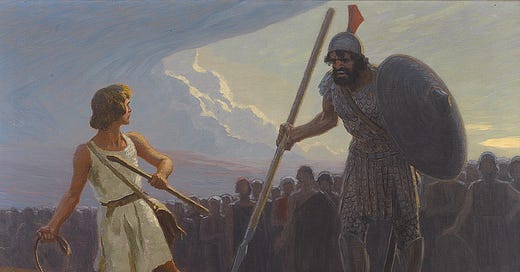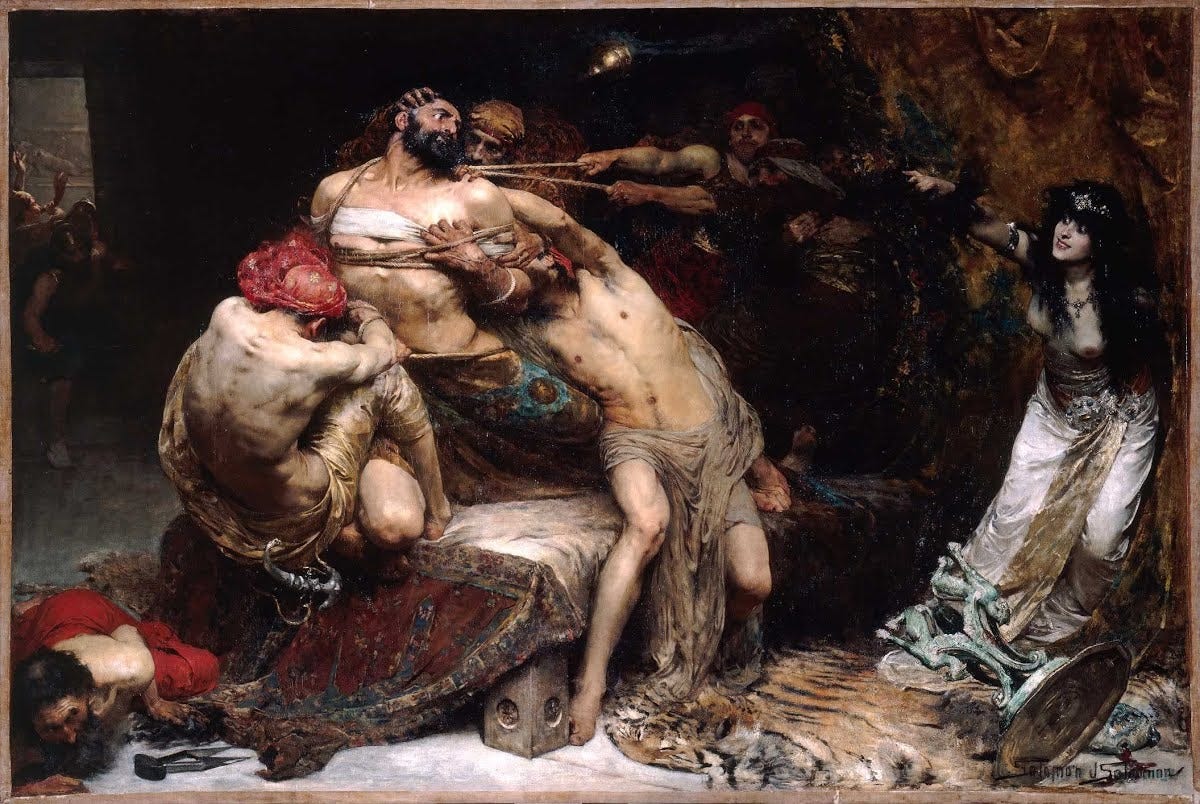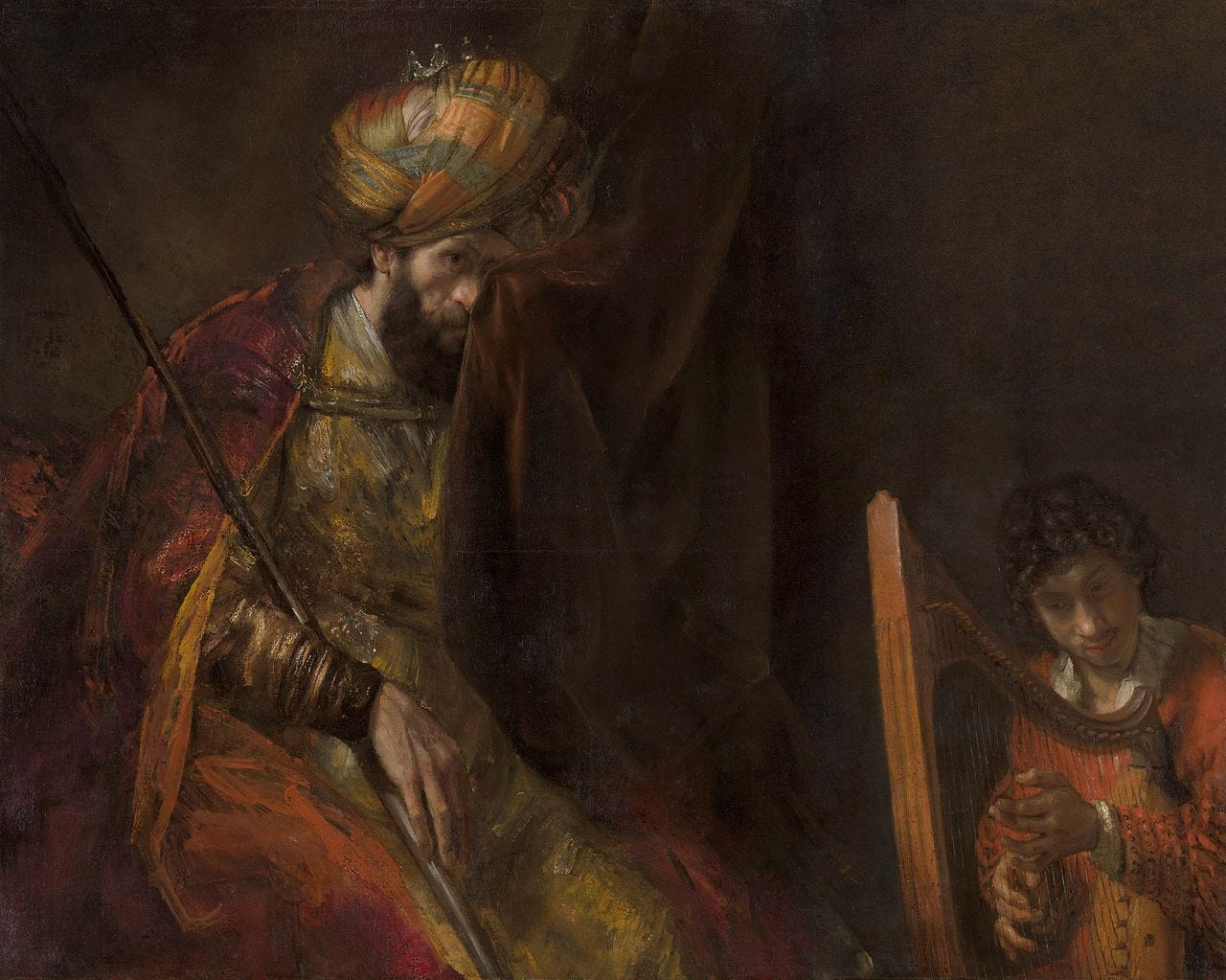Welcome to
. This post is part of our Holy Land series. For the full map of Cosmographia posts, see here.And the fame of David went out into all lands, and the Lord brought the fear of him upon all nations.
— 1 Chronicles 14:17
The Hebrew Bible is not a history book. Nor should we expect it to be; that is not why it was written. That said, there are grains of historical truth contained within its theologically-loaded stories, parables, and cautionary tales. It’s also often our only source for the events therein, so historians must pan its pages for glints of truth among the theology.1 Let us try to do just that as we tell the story of Israel’s most famous son.
According to the Bible’s narrative, after the Israelite conquest of Canaan the land is divided up among the twelve tribes of Israel, whereupon they elect shophtim, or judges, to lead them in times of crisis. Some of these judges could well be credible historical figures, while others are patently not (e.g. the Herculean figure of Samson and his superhuman strength). We have no way of knowing the extent of, if any, the historical truth contained within the judges’ stories,2 but it seems perfectly reasonable that the early Israelites, with their new, but still-forming, identity, were a patchwork of tribes with local leaders. They were, after all, still mostly living in villages and farmsteads among the highlands of central Palestine and Judah during the years in question (c. 1200-1000 BC).
The chronology in the Book of Judges is contradictory, but for all intents and purposes the judges are said to have led the Israelites through various scrapes with both Canaanites and Philistines over the course of several centuries. However, things are changed when Samuel, aging prophet and the last of the judges, grows old and passes the mantle to his corrupt sons. Rejecting their leadership, the Israelites decide they need to become “like all the other nations, with a king to lead us.” (1 Samuel 8:20) But who to choose? After offering a stark warning about the dangers of monarchy, Samuel, on the guidance of YHWH, anoints a handsome young warrior named Saul with holy oil, crowning him king — a move that is not universally popular.
Despite some key victories against the Moabites, Ammonites, Edomites, kings of Zobah, and the Philistines, Saul is found wanting in his faith to the Lord, who subsequently turns against him. YHWH commands Samuel to travel to Bethlehem, where he is to find a young shepherd who will make for a better king. That boy’s name is, of course, David.3
Then follows one of the greatest stories in all of world literature. The Philistines once again come to make war upon the Israelites, but this time they bring their giant champion, Goliath of Gath.4 Terrified and dismayed at the sight of the 9ft tall, bronze-clad Brobdingnagian, no Israelite dares challenge the Philistine warrior for 40 days.5 And then, the young shepherd boy steps forward.








